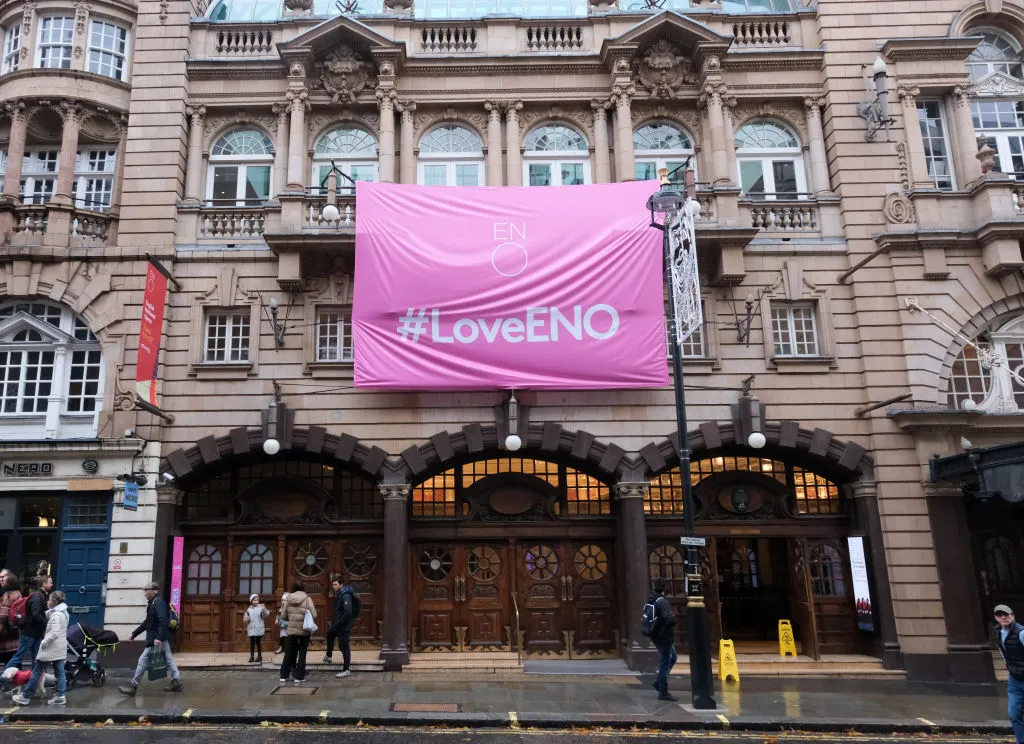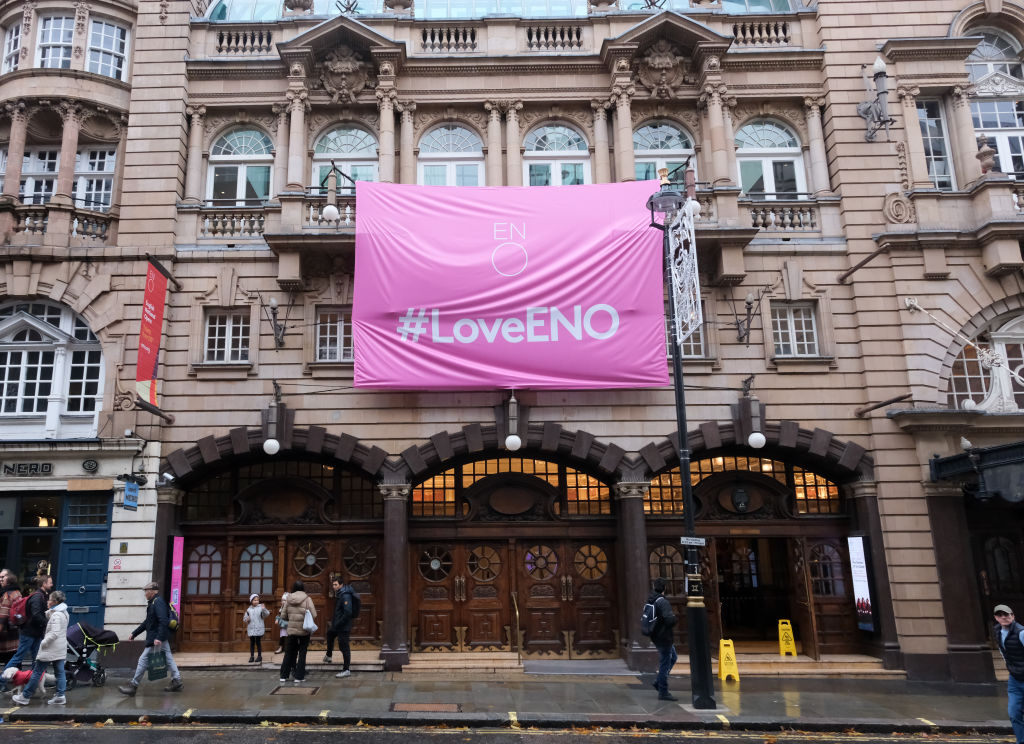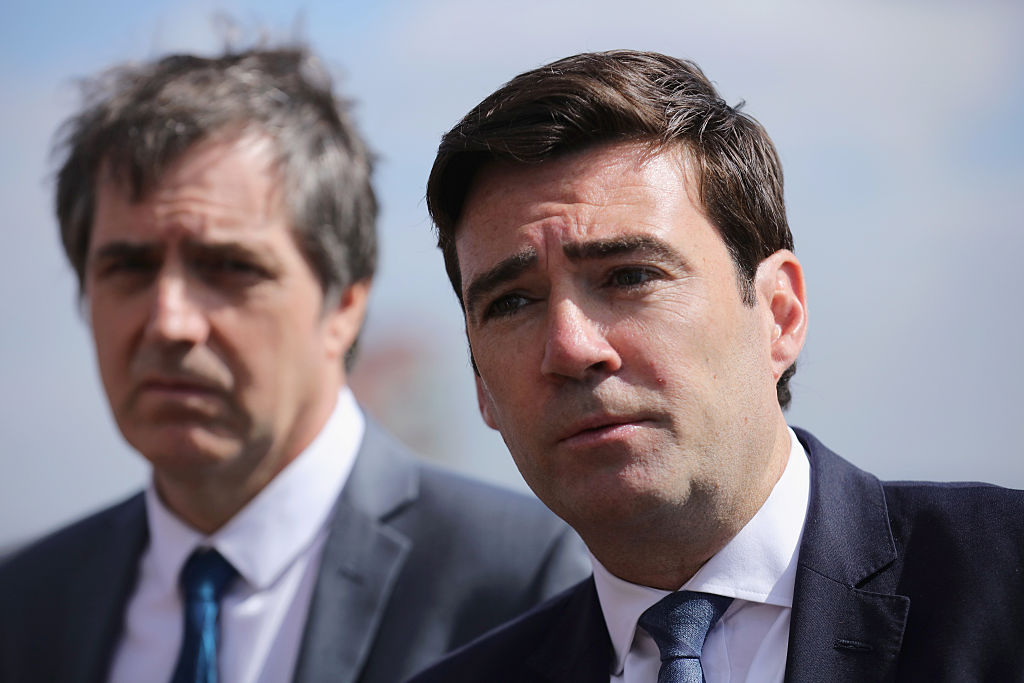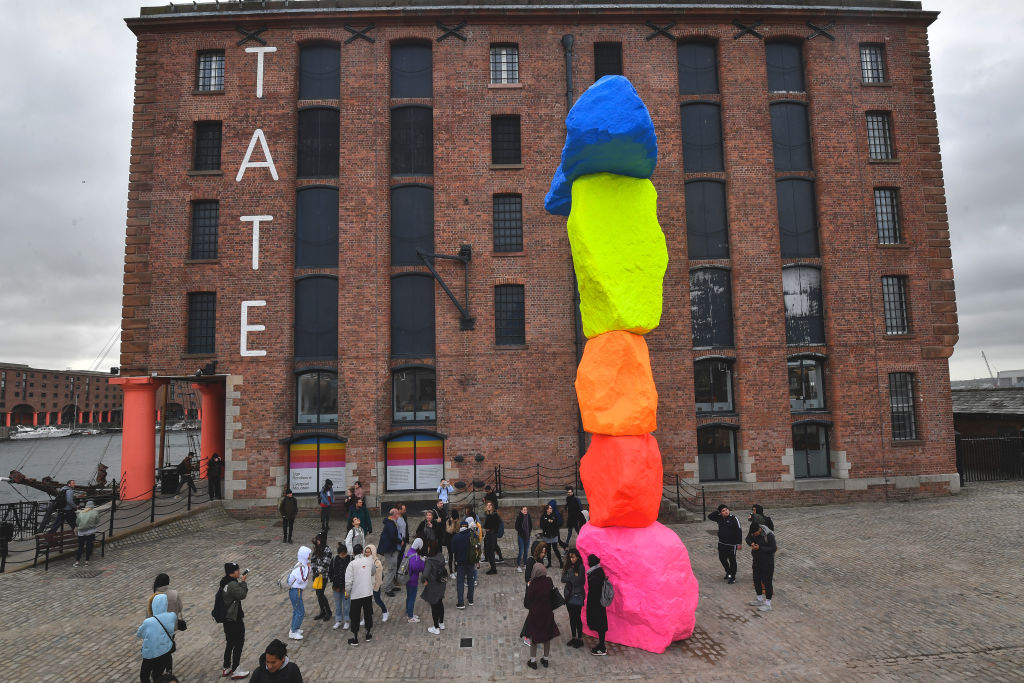Eurovision? Tick. Is opera next? Liverpool tries to build on a triumph

We're on the shortlist for the English National Opera. Cultural insiders wonder whether we're on the cusp of something big
When it was announced that the English National Opera, the second most prestigious opera company in London, was being sent north, lots of people in the capital were less than impressed. It was described variously as “cultural vandalism,” “barbarous” and “enough to make you weep and weep”. Presumably when the move does go through — be it to Liverpool or elsewhere — they’ll look elsewhere for promo quotes.
According to those with inside knowledge of the situation, Arts Council England (ACE) — the government-funded body responsible for allocating arts funding — dropped the bombshell to ENO 24 hours before it was announced that they were expected to move. “They were completely blindsided,” says Jennifer Johnston, a Liverpool-based opera singer and member of the city region’s music board. In Westminster, they called it the “Dorries dictat”, after the infamous ex-culture secretary Nadine Dorries. A number of arts organisations received the same dreaded call: hit the north, or else.
Clearly, there’s a balance to be struck here. A balance between understanding that for an established and highly respected opera company — which has members with families settled in London as well as an established audience — such an upheaval would bring major complications, while also avoiding some of the snobby appraisals. These have just about stopped short of suggesting bringing opera to Liverpool would be like making a German mastiff listen to Bach’s Brandenburg Concertos.
The outrage is nothing new of course, it happened with the BBC relocation to Salford in 2011, just as it happened when 1969, when it was announced the lowly Railway Museum in York would be getting artefacts from London’s British Museum of Transport. The Guardian called it “a wrong decision taken for the wrong reasons and wrongly persisted in”. Where’s the latent audience of Flying Scotsman enthusiasts in York, exactly? It was the same when Liverpool landed Tate. That dump? They predicted a maximum of 200,000 annual visitors. Tate regularly gets three times that.

But why should you care about any of this? Perhaps you’re disinterested in opera, or perhaps you’re happy to listen to La Traviata from the comfort of your own living room and don’t want to queue for a glass of prosecco so expensive you’ll consider remortgaging your house. But I think this is an important story — a crucial story, really — because this isn’t just about a single opera company. This is a story about Liverpool’s cultural scene. We’ve got plenty to be proud of here in terms of past and present arts contributions. But in order for a thriving arts scene, you need both young talent as well as its more mature counterpart. In order for young, creative people to stick around, you need there to be jobs available — a reason to not just relocate to London and live in absolute squalor to pursue your cultural passions.
It’s well known that Liverpool attracts far fewer Russell Group graduates than its rivals (0.5% of the total cohort according to Centre for Cities analysis in 2016, compared to Manchester’s 3.2% and Birmingham’s 2.3%) as well as well as seeing a net loss of 1,757 graduates in 2020 according to the Office of National Statistics. Obviously, culture is only one part of this, but it is a part. I think the English National Opera is important, because I think there’s evidence to suggest that it could usher in a domino effect and bring further cultural institutions to the city. But I’m getting ahead of myself. How did we get to the point where Liverpool was in the running?
When ENO were first ordered north, it was assumed to be a one horse race. Arts Council England suggested Manchester before Manchester even knew anything about it, but when ENO boss Stuart Murphy voiced opposition to the move, a piqued Andy Burnham was having none of it: “If they want to come, come willingly. If you can’t come willingly, don’t come at all,” he spat out at a press conference.
Since then, things have shifted slightly. After things blew up in the press, backroom renegotiations between ACE, the Department of Culture Media and Sport and ENO were undertaken. The result? They no longer need to entirely uproot, but are instead seeking a regional base in the north. Essentially, we’re facing a Channel 4 situation. When the TV channel were told to up sticks, they kicked up a stink and eventually stayed in London with a regional HQ. It’s a sort of watered down version of levelling down. But the key point is this: the watering-down allowed Leeds to steal a march on their larger rivals — Manchester and Birmingham — which would’ve been more likely destinations for a full-scale relocation. They brought in 300 jobs in the process. Perhaps the same could happen with ENO.

In his most recent interview, Murphy suggested five cities — Liverpool being one of them — were under consideration, with a shortlist of three expected later in the month. And without wanting to reduce the (potentially painful) relocation of a prominent opera company to a zero sum beauty contest, that’s exactly what these things often are. So. The game’s afoot.
Who are our rivals? Birmingham, Bristol, Nottingham, Manchester. Manchester are clearly the most ruthless. That’s a given. It’s a “we want everything” attitude that made them get the National Football Museum rearranged from Preston to mask the failure of its Urbis exhibition centre, or arrange — with the aid of George Osbourne — to nationalise the council-owned Science Museum and get millions of capital funding directly from the Treasury.
But happily for us, Manchester also has the obscenely over-budget (by over £100 million!) Factory International arts venue sucking up council air time and Opera North — who tour to Salford — feeling tetchy about the London lot gobbling up their audience. Moreover, people within the sector have also suggested to The Post that various leading figures in Manchester’s culture sector are keen to turn their attention to grassroots projects after a number of larger ones.
What of the other candidates? Birmingham already has an opera company who may feel put out, Bristol might be too southern (and posh) for it to be considered a real levelling up move and Nottingham is the greatest unknown. In that context, and from Liverpool’s perspective, there appears to be an opening.

Johnston believes it’s a misnomer to see the ENO move as a tug-of-war between different cities, like a normal bidding process, explaining that this isn’t an actual bidding process, and that the ball is entirely in ENO’s court as they weigh up what makes the most sense for their future. “Anyone saying Andy Burnham is pushing harder than Steve Rotheram doesn’t know what they’re talking about,” she says.
Nonetheless, on Twitter in recent weeks there’s been increasing pressure put on Liverpool’s local leaders to seize the mantle. One source in the culture sector in Liverpool who worked on high profile bids says that while it's true there is no official bidding process, “the reality is that there are still things you can do to get ahead, it’s still important to impress them and make them a strong offer.” Glyn Mon Hughes — a former music critic on the Liverpool Daily Post — concurs. “I think you can always do more, just keep reiterating the strengths that we have”.
Liverpool have been accused of wooliness on this front in the past. Many will recall 2018’s bid for Channel Four, now widely derided, during which a huge banner was hung on the Cunard building (in breach of planning regulations) only to see them go to Leeds. The source adds: “this has been their problem in the past. Yes, you’ve got a banner, but where’s the vision, the dynamism, the strategy.”
As Peter Campbell, who lectures in sociology and social policy at the University of Liverpool says: “Liverpool is well–placed partly due to historical circumstance. It’s unusual for a city this small to have this offer in terms of galleries and museums. Liverpool has found itself holding onto some prizes from an earlier time”. Which is true, and there’s also been renewal of public cultural infrastructure over the last 20 years, with The Everyman, Museum of Liverpool, FACT, Open Eye, Metal, the Bluecoat extension and so on. And Liverpool continued to invest in culture during the austerity years. Other cities — say Newcastle and Bradford — pulled the plug.

So yes, there’s plenty of culture here. What there isn’t so much of? Opportunities in the arts. Museums and galleries can only hire so many people. As Campbell says, the whole UK economy is centred around London, and nowhere is that truer than in the arts. As McColgan has pointed out in the past about young people: “Why would they choose being an artist when they earn more money in Tesco?”
When you look beyond the museum sector, much of the arts events here are targeted at visitors over the people who live here. Eurovision — as wonderful as it was — is a great example of this. What jobs did Eurovision bring with it? Mostly, it was low-waged hospitality work. It’s a concern shared with multiple people I’ve spoken to in the sector, that high-end events like Eurovision, while fantastic for the city’s status, isn’t a sector in itself.
But can Liverpool now do the unthinkable, and try to give its creatives a reason to stick around? Campbell cites Frankie goes to Hollywood, who performed at Eurovision just a week ago. “You look at them and of course, they’re from Liverpool, and it’s a thing of pride of the city, but what tangibly does Liverpool get out of it? Is any of the industry around them — the recording studios and so on — actually connected to Liverpool? That’s the real challenge.”
Ben Walmsley, the director of the Centre for Cultural Value research centre, explains how Leeds have bucked the trends. “It’s largely via a really visionary council,” he says. “Despite the pandemic, multiple recessions, huge swathing cuts, Leeds has continued to put culture at the heart of its development. It has really strong leadership and that gives confidence to investors.” Part of Leeds’ pitch for Channel Four, its big coup, was its adoption of an idea called “Compassionate Growth”, which essentially means spreading wealth — via investment in culture — evenly across the city, including in some of the poorer areas. “It meant Leeds could show C4 all round the city and the diversity of the talent in the various neighbourhoods”.

Channel Four was a pied piper for Leeds. To the tune of its flute, so followed everyone from BookTrust to Fuse Theatre and National Film and Television School, to EMI (home to Taylor Swift, Justin Bieber and Elton John, among others, although admittedly it seems unlikely they do their recording from Leeds itself). All of these things aren’t just nice to have — they’re employers for creative talent.
It’s something we’re lacking here. Hughes underlines Liverpool’s long-standing lack of media. “The BBC has decamped to all sorts of places,” he says. “Cardiff has Doctor Who, Greater Manchester has various kids programmes, sports programmes and so on, loads of areas have their specialism. Liverpool has nothing… The TV studio here is a shower cubicle with a blind at the back of it”. In terms of film studio space, the long-since touted Littlewoods project (which was — at its inception — intended to deliver the “Hollywood of the North”) dates to around 2015, when there were almost no rival plans outside of Belfast and the south east. Now film studios are popping up in places like Hartlepool and Sunderland, let alone the big hitters like Manchester and Birmingham.
As Hughes says, “there’s a willing creative workforce that frequently has to move away to get the jobs, but they are there, so how good would it be to create those jobs? We’re doing well, but you can always do better”. And Claire McColgan, who led Culture Liverpool to a triumphant Eurovision, echoes this desire to push forward. “We want to do more with music: attract more, build on the uniqueness we have with music…you can’t just sit back and think people will think of Liverpool automatically, it doesn’t work like that.” Perhaps ENO can be a part of that.

And there are good reasons Liverpool should be considered for ENO. ACE cuts have meant Welsh National Opera will no longer tour to Liverpool’s Empire Theatre. Glyndebourne won’t be anymore either. “Suddenly, we have nothing,” Johnston says. “We’re the only major city in the whole country with no opera.” As the culture source adds: “It’s no one’s fault really, but for a UNESCO city of music to have no opera is a travesty.”
And perhaps Liverpool already has a few lesser-known advantages. Before the pandemic ENO were planning a massive, quite radical outdoor event with Invisible Wind Factory. And of course ENO put on a phenomenal Eurovision performance — featuring Ruslana and a gargantuan confetti cannon — last week. Sadly the pandemic canned the former, but it's possible those established relationships strengthen Liverpool’s hand. “ACE have historically said they don’t see much growth for opera in Liverpool,” Johnston says. “But seeing ENO in concert in Liverpool at Eurovision I would say that’s utter nonsense”.
To Hughes, the complaint that ENO is too “elitist” for a city like Liverpool doesn’t wash. He remembers working in London and regularly seeing “fabulous names” in opera at Covent Gardens. “But five minutes down the road there was ENO, also performing fabulous operas but for a quarter of the price,” he says. “This is an approachable, brilliant company, so it would be a considerable coup”.
Hughes is keen to note the things that Liverpool is strong at. “We already have huge organisations — RLPO, the national museums — here. We just shrug it off, but they are big”. It also has a team in Culture Liverpool who have proven they can execute high-profile events like Eurovision — with the pressure of the world’s gaze — to perfection. What it now needs to push on and do is something really difficult: create a cultural sector that can give young people a reason to stick around.

Comments
Latest
The unexpected auction: A London fund manager is selling Merseyside homes from under their tenants
Northern Powerhouse Rail is back on track. We think...
The clockmaker of Wavertree
One of Merseyside’s oldest sports clubs still plays every Saturday
Eurovision? Tick. Is opera next? Liverpool tries to build on a triumph
We're on the shortlist for the English National Opera. Cultural insiders wonder whether we're on the cusp of something big